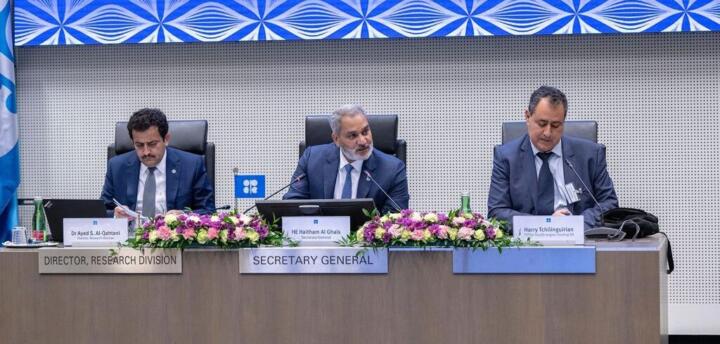In a pivotal development at the ongoing COP28, the Organization of Petroleum Exporting Countries (OPEC) is urging its member nations to resist the calls for a phase-out of fossil fuels. In a letter addressed to OPEC members, Haitham Al-Ghais, the Secretary General of OPEC, emphasized the need to prioritize emission reduction strategies over singling out fossil fuels, highlighting the importance of a just and fair transition for all.
Expressing concerns about potentially detrimental politically-driven campaigns, Al-Ghais appealed to OPEC member countries and non-OPEC nations to proactively reject any proposed texts or formulas during discussions that specifically target energy sources like fossil fuels. Instead, he advocates for a broader focus on reducing emissions, ensuring a comprehensive and inclusive approach to addressing the global climate challenge.
Al-Ghais stressed the urgency of substantial investments across diverse energy sectors, encompassing hydrocarbons and various technologies. The Secretary General underlined the global necessity of understanding and addressing the unique energy requirements of different communities, emphasizing the importance of equitable, fair, and inclusive energy transitions.

During the second Joint GECF-OPEC Coordination Meeting at COP28, Al-Ghais underscored the significance of achieving a balanced and all-inclusive outcome. He stated, “Our goal must be to reduce emissions, which is the core objective of the Paris Agreement, while ensuring energy security and universal access to affordable energy. All types of energy and the deployment and transfer of all relevant technologies will be required.”
Supporting OPEC’s stance, Gabriel Aduda, the Permanent Secretary at the Ministry of Petroleum Resources, emphasized on Twitter that fossil fuels, particularly natural gas, are crucial for sustainable development. He highlighted the importance of developing technologies like carbon capture utilization and storage (CCUS) alongside other initiatives, emphasizing the focus should be on reducing emissions from fossil fuels rather than phasing them out.
Notably, OPEC has previously dismissed the International Energy Agency’s (IEA) prediction that fossil fuel demand would peak before 2030, emphasizing the consistent failure of such forecasts in the past. OPEC argued against halting investments in new oil and gas projects, emphasizing the ongoing technological advancements aimed at reducing emissions within the industry.
Nigeria, a prominent OPEC member, has taken a firm stance at COP28, with Salisu Dahiru, the Director General of the National Climate Council, declaring that the country will not cease using fossil fuels. Dahiru asserted that Nigeria’s economic growth is closely tied to the expansion of its fossil fuel use and expressed concerns about the proposed phase-out, stating, “We are concerned about the phase-out of fossil fuels, which is against Nigeria’s position and Africa’s position, and we are trying to see how that can be reflected in the COP itself.”
This development comes against the backdrop of Africa contributing only about 3% to global greenhouse gas emissions, while China, a first-world country, contributes about 30% (as of August 2023). As the discourse continues at COP28, OPEC remains steadfast in its call for a balanced and pragmatic approach to address climate change while maintaining global energy security.
Support InfoStride News' Credible Journalism: Only credible journalism can guarantee a fair, accountable and transparent society, including democracy and government. It involves a lot of efforts and money. We need your support. Click here to Donate
